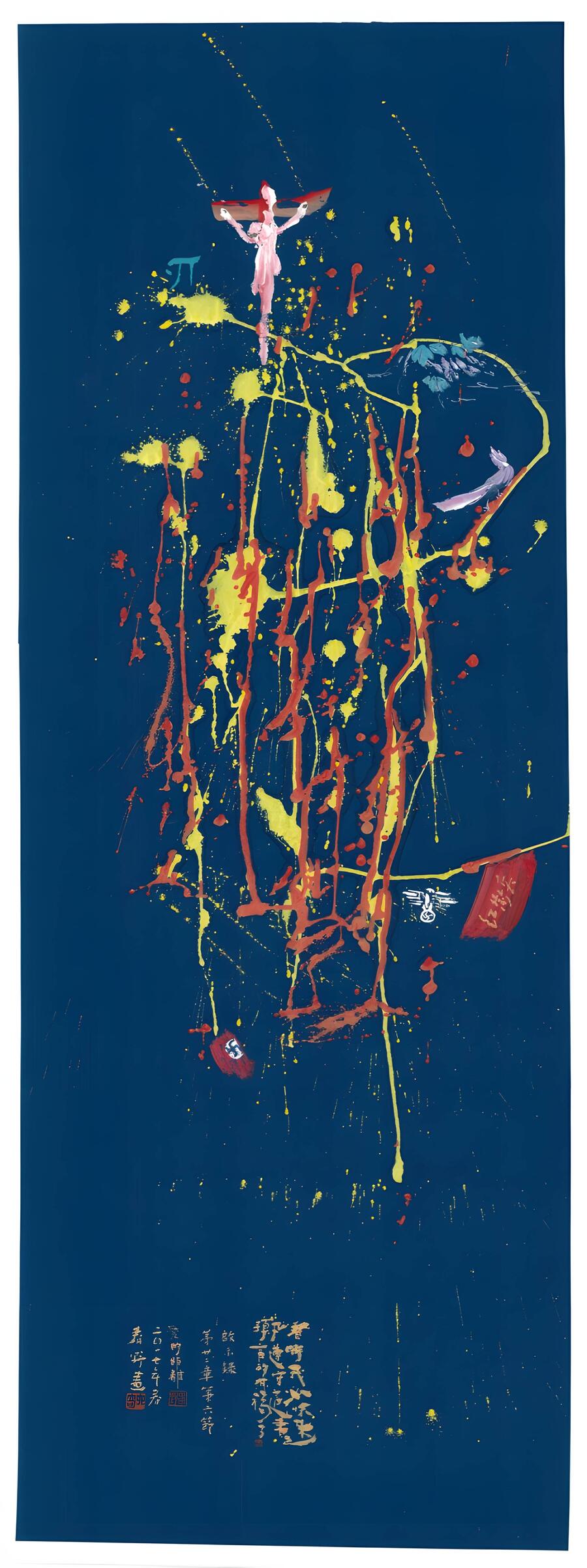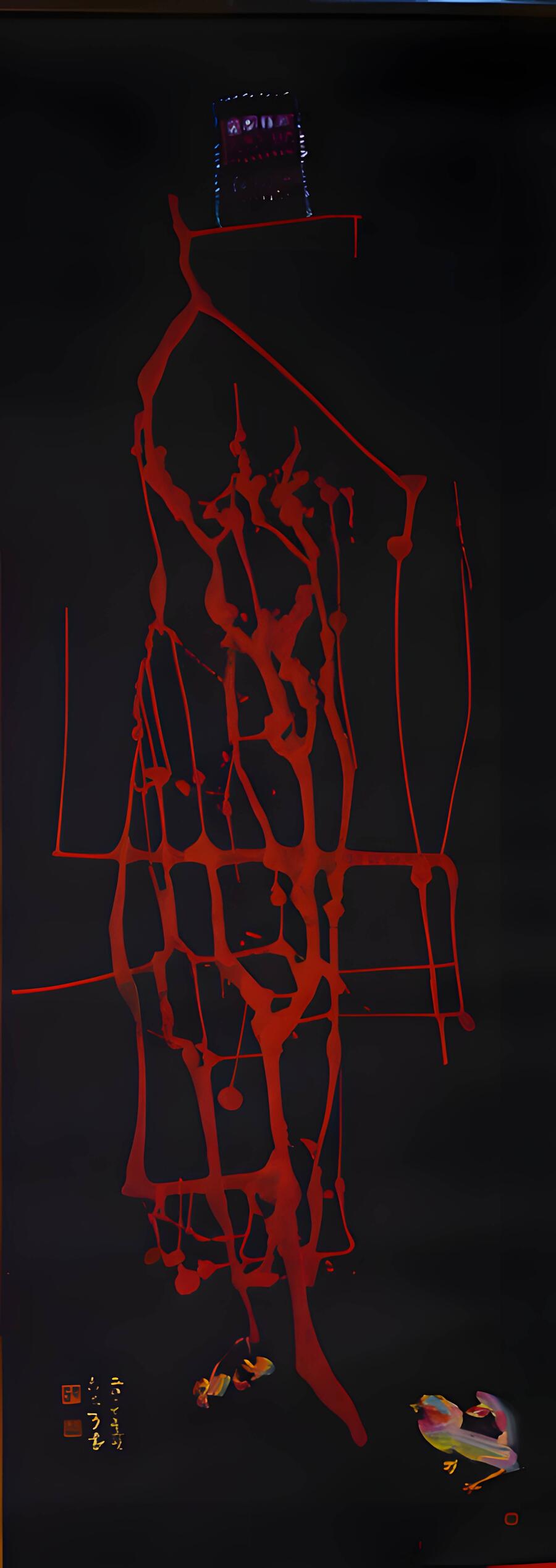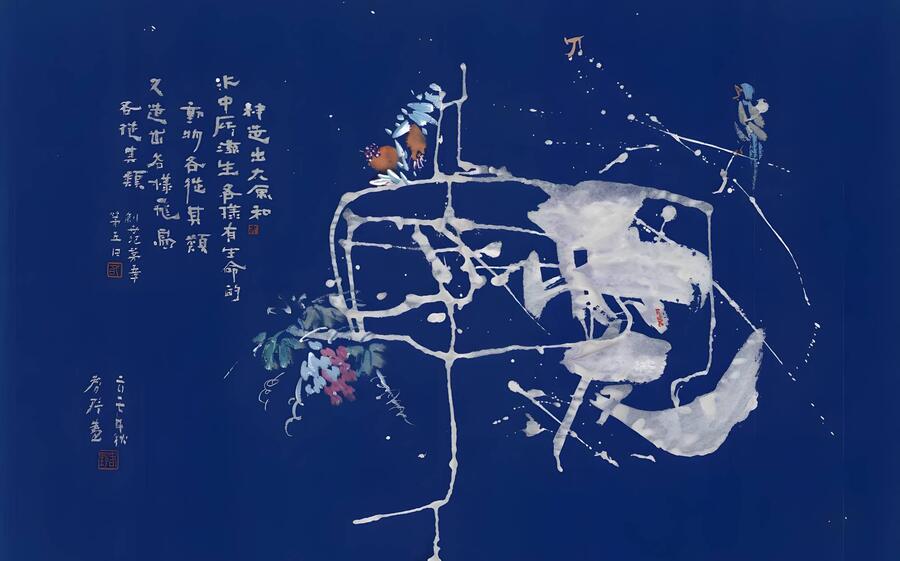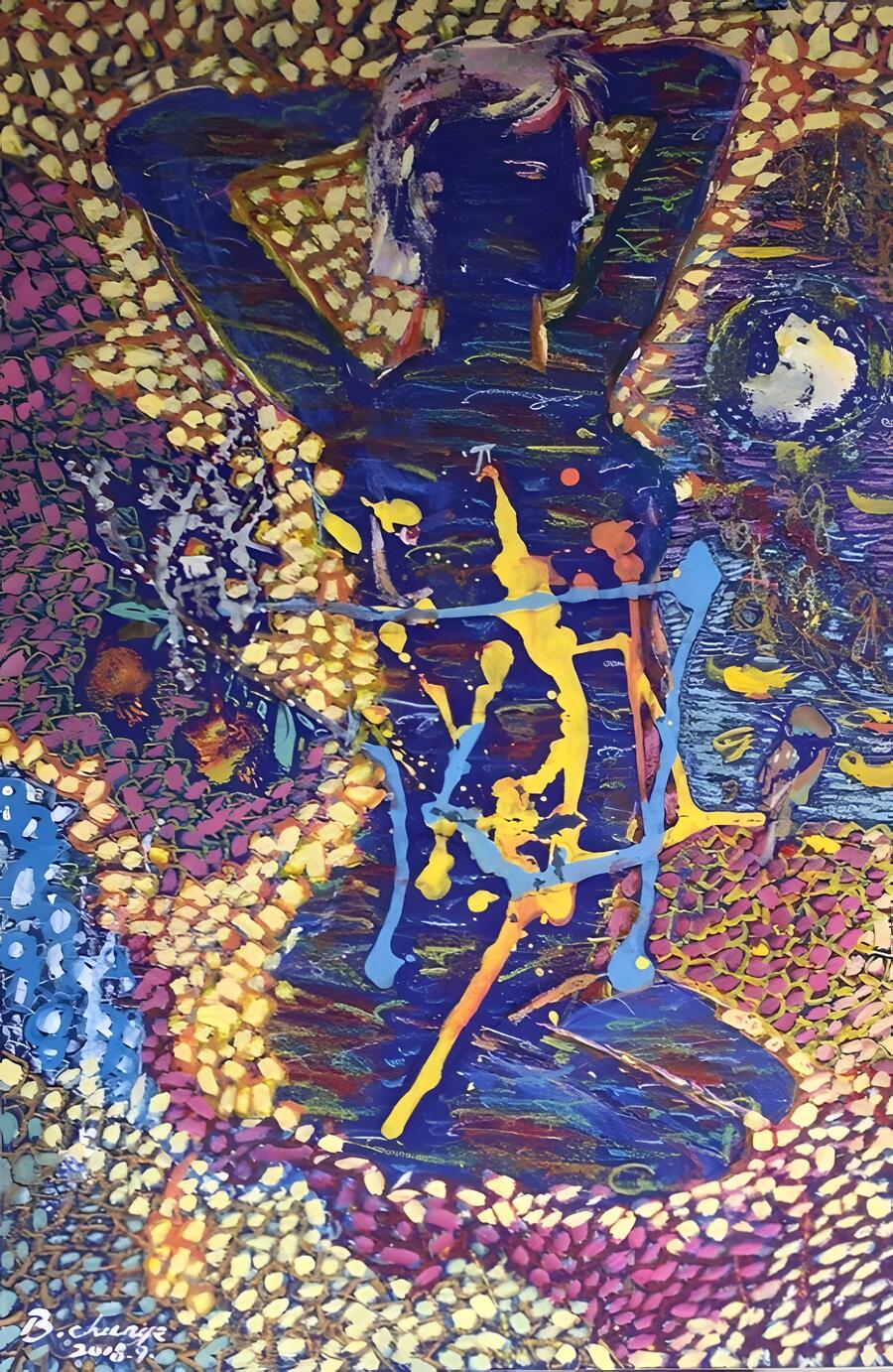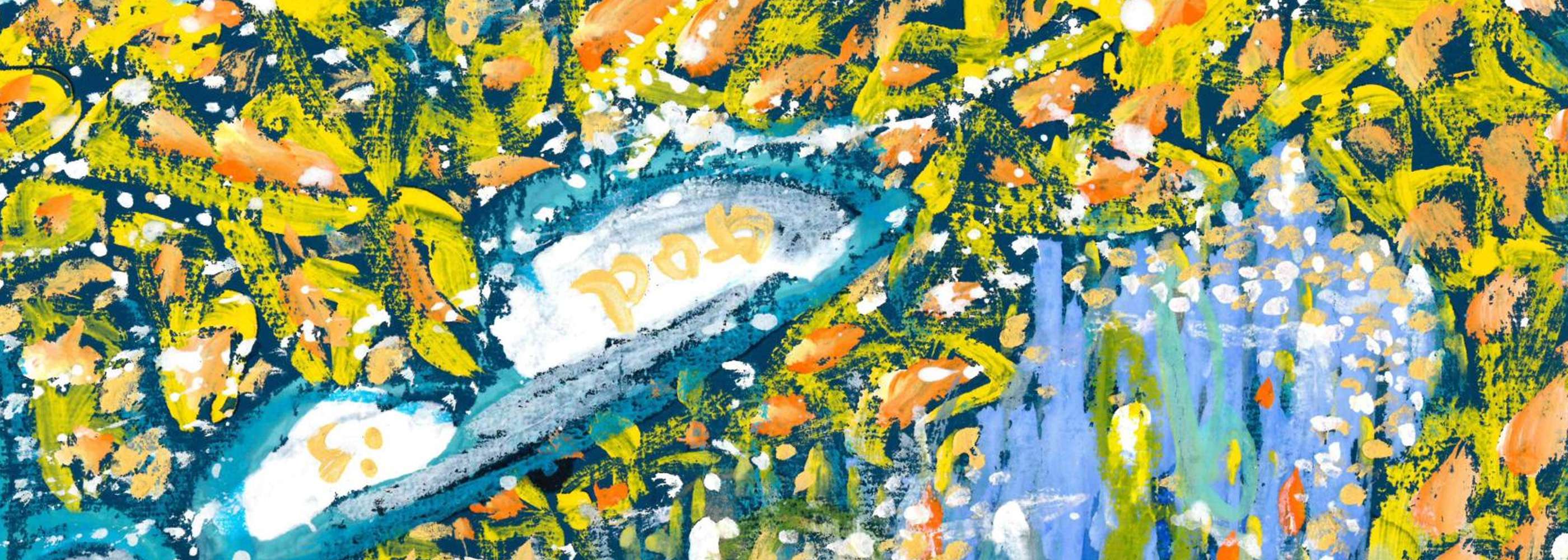

Chunya (Bisale Chunya), real name Wu Liuqi, born in 1961, is a Japanese-based professional artist and poet. Currently, he is a member of the International PEN, the Japanese Chinese Writer's Association, a researcher at Zhu Dakuo Cultural Creative Studio, and a member of the American Harvard Art Salon.
Literary Creation Background:
Pen name, chunya. Manchu, born in January 1961. He began his literary creation in 1978, with novels, poems, and reviews appearing in domestic newspapers and periodicals. In 1983, he became a member of the Shanghai Writers Association. In April 1987, he went to Japan for further study, and in 2007, China Writers Publishing House published his novel "Clear Sake Drops" and poetry collection "Sincere February." In 2014, he published the poetry anthology "Xiyeno Erpai." In recent years, his representative works have been included in the UK's "World Poetry Yearbook.2012" and Japan's "Hot Pot Son. Final Issue 2014". His important works have been translated into Japanese, English, French, Russian, and other languages, attracting attention from relevant countries and regions.
Since 2015, he has been a special contributor of poetry for "Shanghai Literature."
He was nominated for the first "Soft and Hard Award" in 2008 and won the "Poetry Monthly" Poetry Award in 2009. In 2021, he won the first prize in the poetry contest for the 100th anniversary of party building, sponsored by "Shanghai Literature" and others. He also has several uncollected awards.
Artistic Creation Background:
He began practicing calligraphy in his childhood and was fortunate to receive guidance from several famous artists during his high school years. During his youth, while studying in Japan, he was deeply influenced by the calligraphy theory of Inoue Yuichi, advocating aestheticism in literary and artistic aesthetics. He is one of the important inheritors and developers of modern calligraphy theory, actively advocating the mission of practicing modern calligraphy art, which is that all human languages can be expressed through calligraphy. His related works are known as "chunya-style calligraphy form." Important calligraphy works have been collected by museums in Japan, South Korea, and other countries, as well as important domestic and foreign university museums. In modern paper-based painting works, he admires the artistic expression style of Kumagai Morikazu, establishing the "chunya Color Ink Wax Painting" expressive system, and was nominated for the "Outstanding Artist Award" at the 42nd New York Contemporary Art Fair in 2021. In oil painting and acrylic mixed-media creations, he is rooted in existentialist philosophy, advocating suprematism and aestheticism artistic expression, and actively researching and developing the art of "multi-dimensional visualism."
From 2019 to 2021, he served as the honorary editor-in-chief of "Chinese Artists" magazine.
Artwork Exhibition Chronology:
March 2016: A solo exhibition of modern calligraphy works was held at the Tongji University Museum in Shanghai.
October 2017: Calligraphy, ink painting, and oil painting works participated in the 7th Wuxi Art Expo special exhibition.
March 2017: "Chinese Artists" magazine column introduced chunya's calligraphy and poetry works, along with Zhu Dakuo's commentary "Glyphs: Visual Creation of Semiotic Expression."
March 2018: "Chinese Artists" magazine column introduced chunya's modern ink paintings, accompanied by the article "The Sunshine Race's Quota."
April 2018: Shanghai Bund "One Beach One Look" modern ink exhibition
October 2018: Invited by Ma Lin and Wang Nanming to host "Joyful Gate" chunya 12-language contemporary calligraphy solo exhibition.
October 2018: Participated in the New York Riverside Cathedral art exhibition.
2021: Nagoya chunya art solo exhibition postponed due to the pandemic.
2021: Participated in the 42nd New York Art Fair and was nominated for the "Outstanding Artist Award."
2022: Invited to participate in the Boston American Contemporary Art Expo.
In previous years, calligraphy works have been exhibited in Europe, America, and Japan.
Educational Background:
Due to historical reasons, he dropped out of Fudan University and its branch school. (Other non-literary and artistic-related education is not mentioned here)